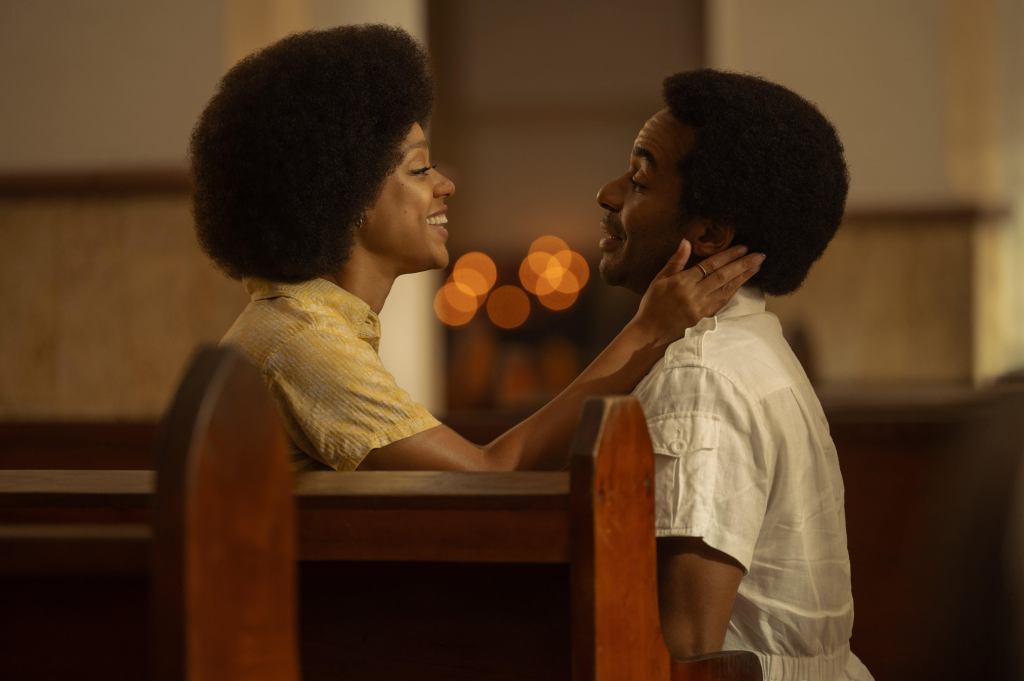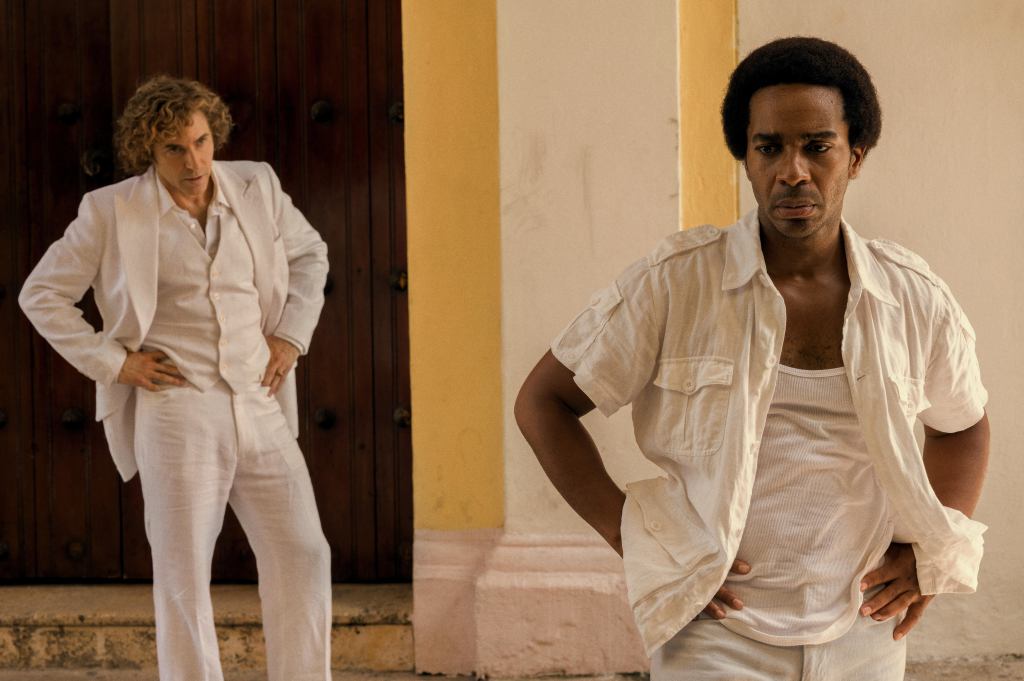As the finale of Apple TV+‘s limited series The Big Cigar approaches, the show’s creator, Janine Sherman Barrois, reflects on the profound impact of bringing Huey Newton’s remarkable story to the screen. Adapted from Joshuah Bearman’s Playboy article, the series chronicles the intricate plot to help Newton, co-founder of the Black Panther Party, escape to Cuba amidst intense government persecution.
In a recent interview with PopCulture, Sherman Barrois shared her initial reaction to the source material that sparked her interest in adapting it for television. “I literally was on the set of Claws at the time. I got an article. It was the Playboy article that Josh Bearman wrote about Huey Newton’s escape to Cuba,” she recounted. “I just was blown away. I thought this is something I have never seen there. They actually made a fake movie to get him out of the country. And it was very Argo-esque, and I thought this is a great way to tell a story that not only is compelling but that it’s also entertaining.”
Videos by PopCulture.com
Besides presenting a gripping caper story, Sherman Barrois explores the history and significance of the Black Panther Party and Huey Newton’s arc. “For all the people who do not know what the Black Panthers did, I thought it was a great way to also contextualize a little bit of their history and Huey Newton’s arc before his death,” she explained.

In her approach to the adaptation, Sherman Barrois emphasized the importance of understanding the relentless persecution Newton faced from the government and the role of COINTELPRO tactics in his life.
“He was paranoid. He was continuously arrested. The government was after him. The Black Panther Party had been infiltrated by the government. And so him coming to Hollywood was a last resort,” she said. “It was a way for him to make an escape where nobody would be looking for him as he tried to flee to exile.”
Sherman Barrois diligently wove together the caper storyline with the broader narrative of Newton’s life, from the formation of the Black Panther Party and their pursuit of policing the police to Newton’s unjust arrest, solitary confinement and subsequent shift towards social programs.
“That journey was very important for us to show that the literal act of trying to feed children food before school, literally make them pancakes, was what made him enemy number one to the FBI,” she explained.
To capture the essence of the Black Panther Party’s struggle, Sherman Barrois also sought to portray the strength and influence of women within the movement: “We wanted to give you the feeling that while Huey was escaping and he was fleeing to exile, he was making a decision to hand off the party to, you know, Elaine Brown, to these iconic figures who would go on to make history.”
Building tension and suspense while staying true to the real-life events was a delicate balance. Sherman Barrois shared, “We had to sort of streamline some of the events, and we had to dramatize and make the events bigger in places. But the caper of getting him out of the country was a focus, at any minute the feds could kick down the door.”
Casting the role of Huey Newton was a pivotal decision, and Sherman Barrois knew there was no better choice than André Holland, who she called “one of the greatest actors of our time.” She recalled, “We found out was available through our agents. We knew if we could get him, if we could get him to respond to the material, there was no other way. Or choice.”
Sherman Barrois also praised the contribution of “phenomenal” director Don Cheadle, who “brought a weight and a gravitas to the set.”
“He (Cheadle) was very, very, honed in and focused on making sure that we always elevated Huey Newton and that Huey Newton was the central focus of the show and at no time should Hollywood overshadow, or should Bert [Schneider] be equalized to Huey,” Sherman Barrois said.

Through her work on The Big Cigar, Sherman Barrois has gained a greater appreciation for the role of art and media in shaping societal change. “I think it’s so valuable because the whole world is glued to their phones. You can barely get people to read a book,” she said. “You can barely figure out what you want to watch on television. So if you’re in a situation where you’re lucky enough, the way we were, to be able to tell this caper story, but also to sneak in history and actually get it made on a platform as prestigious as Apple’s.
“Kids who may not know about the Black Panther Party, they may not know about any of this. If they watch the show, they watch the digital assets. If we can get anyone to lean in and want to make more work about this and more work that resonates within the Black community and shows the larger community. Like what we went through to get here. I think it’s imperative.”
As the finale approaches, Sherman Barrois hopes that audiences will resonate with the message: Be the change you wish to see in your community.
“I think one of the biggest takeaways will be that, you might feel like you’re very small in the world and that you have no voice and you have no say,” Sherman Barrois said, “but I think once Huey is writing, once he makes it to where he’s trying to get to, you will feel him and you will hear his voice and you will know that you have the baton to make change. He’s passed it on to all of us to say something, do something and become active in our communities.”
Looking ahead, Sherman Barrois remains committed to shining a light on underrepresented stories and figures through her production company, Folding Chair Productions. “Right now in my company, led by Nikita Adams. We’re fighting to get more shows done that shine a light on a lot of women and black people and BIPOC people who fought to make change. So I hope that you’ll see more content, in the future coming from myself and from the company, our sole focus is to continue to shine a light on us to shine a light on black people and to shine a light on these stories that could get forgotten.”








